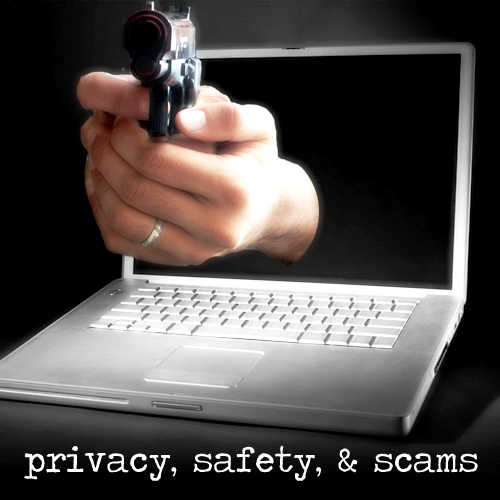How to Protect Yourself From Facebook Scams
Given the dangers of social media as presented above, here are some practical tips on how to be safe from Facebook scams.
1. When in doubt, DON’T CLICK that LINK! This holds true for any internet activity such as using your email, surfing the net, using your instant messenger, etc. Be on the look out for weird status messages, weird private messages, emails, etc. Always ask your contact if he or she has indeed posted the link before clicking on it.
Be extra careful when you see links attached to messages designed to arouse your curiosity or greed as this is a standard operating tactic for scammers. Some examples are: hey do you know your profile pic is posted in , 98% Of people FAILED this EYE TEST! Will you? , 99% of people can’t watch this video more than 25 seconds” , hilarious video , I won a free iPad , etc.
2. Keep your anti-virus/anti spyware programs updated! Just like in the real world, computer viruses, along with spyware, malware, keyloggers, worms, etc adapt to online threats. It’s a never ending virtual arms race between antivirus programmers and virus makers and the only thing protecting your computer and your data from new malware and viruses is your antipyware/antivirus daily update.
3. Limit Online Surfing to Trustworthy Sites: Trustworthy sites are those having a long history of good reputation and service in the internet. An online tool that will help you in determining the trustworthiness of the site is the Google Page Rank tool. Generally, the higher the page rank of a certain website, the more reputable it is. You can also use the page rank tool in determining whether a Facebook log-in page is a phishing site or not. The main log-in page of Facebook –www.facebook.com has a pagerank of 10/10. Phishing sites will have a pagerank of 0/10.
4. Optimize your Privacy /Security settings and Limit Information posted on Facebook Accounts: Make sure that your Facebook privacy settings are set to the highest level by limiting those who can view your profile info, email address, birthday, home address, pictures and updates to friends only or in some cases, by setting these to private.
Check and limit the applications settings to include only the applications you trust. [you can check how trustworthy applications are by reading the reviews on their application pages and by doing a Google search on them as well as the reputation of the companies that made them]. You can edit application settings by clicking on the appropriate drop down option under the account button. Here you can check what applications you have granted additional permissions to, applications you have authorized and those that you have added to your profile, etc. You can also view additional details on how each application uses your profile info by clicking on the edit settings button.
Limit the information you post on your profile. Don’t post sensitive information such as your home address, mobile number, home phone number, etc if you want to make sure that such info will not be used against you and your friends by scammers.
5. Change and Optimize your Facebook Password: If you have noticed your Facebook account doing weird things liked posting links on your wall without your permission or sending pms to your friends, change your Facebook password immediately after updating your antivirus programs and doing a full system scan. Use a password that cannot be easily hacked by making your password long and by utilizing numbers and special characters.
Lastly, always be on the lookout for new Facebook scams and how they work / spread by joining the Facecrooks Fanpage and by reading the scam watch section on its website [www.facecrooks.com]. Facecrooks update its members daily regarding trending Facebook scams, what they do and how you can deal with the threat. By keeping tabs of the new trending scams and by passing along the scam warnings / alerts to your friends, you can do a lot in keeping Facebook a scam free social network.
{loadposition adsense2}

 Previous post
Previous post
 Next post
Next post





